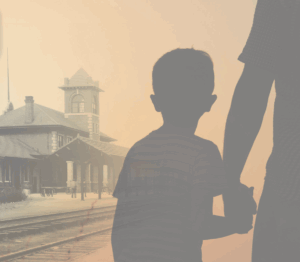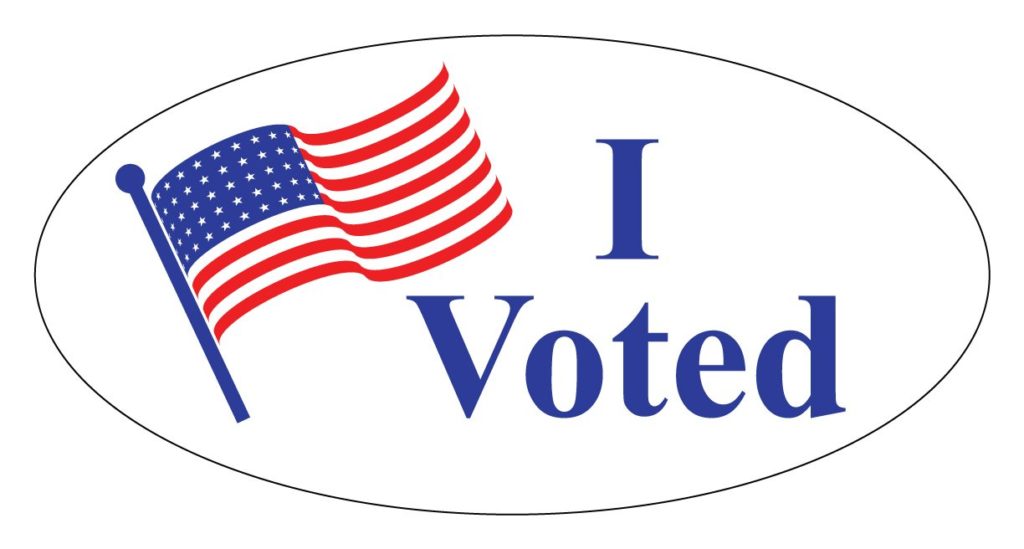
Their true agenda: distract, distort, deflect
If they really had been concerned about attracting quality teachers to inner-city schools, those who started yet another false controversy at the Oct. 21 Goldsboro City Council meeting could have done more than just throw out a stipend proposal minutes before the final gavel.
And they could have been honest about how stipends really happen.
They could have proposed confronting Wayne County Commissioners and School Board members — you know, those who are actually in charge of teacher salaries — during their meetings.
They could have acknowledged that those who teach in central attendance district schools are already compensated more than those in other parts of the county.
They could have talked about real budgets, where the money will come from and what the impact of such an expenditure might be.
They could have come with statistics and testimonials from teachers.
But they didn’t.
Because this was not really about teachers — or a stipend.
It was about making it appear that their fellow council members do not support city educators.
Councilmen Antonio Williams and Bevan Foster cooked up their latest ploy to make Mayor Chuck Allen and councilmen Gene Aycock, David Ham and Bill Broadaway look heartless — to win over voters with a “gotcha” moment.
And sadly, the fake outrage on display at the end of that Monday’s meeting — and make no mistake, it was nothing more than a political stunt — was not the most sickening thing about the vote that affirmed the majority’s stance that it is the county’s responsibility to pay teachers, not the city’s.
What was so disheartening about this particular moment is that Williams and Foster used teachers.
Read that again.
They USED teachers.
Forget about the fact that their call for the city to provide a stipend to inner-city schools might as well be them saying that those teachers work harder than the rest of this county’s educators.
Tell that to the staff at Edgewood.
Say it to teachers in the county with booming ESL populations in their classrooms.
Tell it to those who work in rooms that are at capacity.
Make that argument to any kindergarten teacher or anyone who works with at-risk youths.
It’s a ridiculous notion.
And worse, by characterizing the bonus as, essentially, combat pay, they are attacking the very at-risk students they say they are fighting for when they advocate for summer employment and food programs.
Think about that for a moment. What message does their proposal send to those youths?
That you have to bribe people to want to teach them? That teaching them is somehow worth more because they are “troubled” and tough to deal with?
Here’s the truth.
All teachers deserve more money.
Here’s another.
ALL of our young people are harder to deal with these days.
But perpetuating stereotypes about the students at our inner-city schools by inferring nobody wants to teach them without the promise of bonus income is, well, pick a word.
Let’s start with degrading and dangerous — or how about racist.
It also happens to be incorrect. Just ask the countless quality educators who show up day in and day out to make an impact on the lives of city youths.
They are there to make a difference — for students who have the most to gain and the most to lose.
And, by the way, as we noted earlier, many of those teachers do make more than their counterparts in the county. Signing bonuses and other incentives are in place, right now, thanks to the county, yet, many of these schools are still underperforming.
So no, money will not fix the problem we have inside our inner-city schools.
And while the conversation about what the real issues are is one all citizens should engage in, the truth is, financing teacher salaries is not the job of the City Council.
But it makes sense that Williams and Foster would pull this move during early voting and ahead of Election Day.
They want to distract you.
If you’re talking about the “anti-teacher establishment,” you’re forgetting about Foster’s recent comments about Seymour Johnson Air Force Base and the war he waged on religion last year on his public, personal Facebook page.
He’s claimed his beliefs are being misconstrued by his political enemies to damage his campaign. But his December 22, 2018 Facebook post announcing his New Year’s resolution of “getting rid of fake people” and making sure “Jesus is first” seems fairly transparent.
So don’t be fooled into protesting that vote on teacher stipends.
If you allow yourself to stare at that shiny object, you might not have time to read the full report from an investigation into allegations that Williams created a hostile work environment for a female city department head that resulted in an active EEOC investigation.
You might not scroll through District 5 candidate Constance Coram’s public Facebook page and find her post from June 21 that calls Goldsboro a “red neck, Jim Crow, kind of city,” characterizes downtown as an “area that is not doing much of anything,” and refers to the current city leadership team as a “Massa.”
And you probably won’t have the stamina to research the cost of District 6 candidate Dr. David Craig’s proposal to turn the Goldsboro Municipal Golf Course into a mini golf course, water park, go kart track and zipline.
But if you did, you would see that the suggestion is at best, absurd and expensive, and at worst a liability nightmare and black hole for tax dollars.
But when you are just throwing out anything that might stick to get elected, you don’t think about realities or talk to professionals.
We did. Try a minimal cost of tens of millions of dollars — just to build it. That doesn’t include the cost of staff, maintenance, utilities or liability insurance.
So, here’s the bottom line.
What Williams and Foster did Oct. 21 makes sense.
It really does.
How do you sell sweeping change to a community while downtown Goldsboro is thriving, the real estate market is booming and the federal government is doubling down on its investment in Seymour Johnson Air Force Base by sending in a new fleet of tankers?
Sadly, the answer seems to be by peddling in innuendo, race baiting and pitching fantasies and baseless promises.
Let’s hope Goldsboro doesn’t buy into it — and that people don’t sit this one out.
Because believe it or not, local government actually matters. And this election matters. It will set the future of your community — and determine who and what Goldsboro is.
And even if that is not enough to compel you to head to the polls, think about it this way. Voting is a responsibility.
We should cast a ballot because men and women we know — our friends, relatives and neighbors — have died not only to defend that right, but also to ensure others around the world could have it as well.
What message does it send to our robust veterans community or the active duty and Reserve airmen who live among us if we don’t use five minutes during our lunch hour or after work to cast that ballot?
What does it say about us when there are literally people risking their lives to vote in countries Team Seymour has helped to liberate — and we just can’t find the time or motivation to do the same?
It’s a slap in the face.
It goes against everything we say we believe in — particularly in this proud military town.
So, when you think about whether or not your vote matters this time, we should remind you that Foster won his seat on the council with 230 votes.
Williams barely broke 100 votes to claim the top spot in the recent District 1 primary and won his last general election race with 167.
In fact, none of the incumbents running for office broke 1,000 votes in the last election other than Mayor Chuck Allen.
And despite all the drum-beating by alarmists on both sides of this particular municipal election, this is how the early voting numbers broke down:
Note: These numbers will not add up to the total number of votes cast (3,248) because several ballots are for races that have nothing to do with the Goldsboro City Council:
Mayor: 2,955
District 1: 288
District 2: 603
District 3: 558
District 4: 377
District 5: 562
District 6: 567
Yes. You are reading those numbers right.
That’s how up for grabs these seats are.
And if we’re not careful — if we sit on the sidelines and hope that our neighbors will make the right choices — we might very well wake up Wednesday with a much different vision for the future of Goldsboro than the one that has seen our city thrive for the last decade-plus.
Election Day is tomorrow — Tuesday, Nov. 5. To find your polling place, click here.
The following candidates are those we feel best posture Goldsboro for success in the coming years.
Some have governing experience. Others, in our opinion, bring a fresh perspective and have served our community selflessly for much of their adult lives.
They are male, female, white and black. They are former teachers. They lead important organizations in our community. But most importantly, they are people we believe can work together and represent our city with the dignity we should expect from all of those seated at the council’s table.
And our hope is that they can get our council back to the business of working together for the benefit of all our citizens — like Al King, Donnie Chatman, Bob Waller, Jackie Warrick, Chuck Allen and the Rev. Charles Williams did more than a decade ago.
Mayor: Chuck Allen
District 1: Hiawatha Jones
District 2: Bill Broadaway
District 4: Sadie Simmons
District 5: David Ham
District 6: Gene Aycock
Note: District 3 was a close call. It’s the reason we have not, until now, published our endorsements.
Here’s why.
Tonya Barber seems to be the logical choice.
She is experienced and passionate. She has spent much of her adult life fighting for this community. She’s progressive. She has courage.
She checks all the boxes and then some — and told us a great deal about who she is by stepping down as the chair of the local Democratic Party when fellow Democrats attempted to weaponize the Republican Party’s endorsement of her candidacy.
But her opponent, Taj Polack, is someone we believe in, too.
We have seen his work with at-risk youths and feel he has a real heart for his community. We know about his years of public service and believe him to be an intelligent man who would strive to do right by his constituency.
Are his early campaign ties to Foster, Williams and the other candidates on their ticket a legitimate concern? Yes.
But do we believe Polack is dangerous for the city? No.
So here we sit, with two candidates who, while they have different stories and levels of experience, both possess voices we feel are important for our city.
And while our mind tells us Barber, our heart tends to gravitate toward Polack — or, at least, in the Polack we believe he can be.
But this election, given all that is at stake, is about a sure thing — and we understand the fear some people have of losing votes on key issues depending on which way the other races swing.
Barber’s decision to step down as chair of the local Democratic Party wasn’t easy, and it is a sign that when she is confronted by a decision that is right for the city, but wrong for her political backers, she will do what’s right.
That’s a rare quality. And it was enough to earn her the edge in District 3.
But that doesn’t mean there isn’t a significant role for Polack in shaping the future of our city.
He could be the leader of a new movement — to help unite, rather than divide, this community. He could build bridges between races and generations. He really does have that spark.
He has ideas to contribute and insight that is important enough to merit serious consideration from the mayor and those who win in November.
And should he lose, we encourage the city’s new administration to consider him for just that sort of role.

A loaded discussion

Fighting for their lives
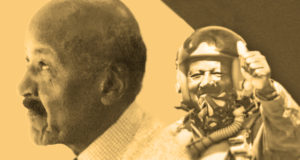
Goldsboro loses a giant
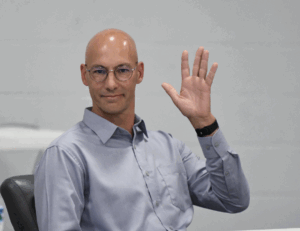
“I’m a flippin’ hurricane!”
Public Notices — Jan. 4, 2025

Belting it out
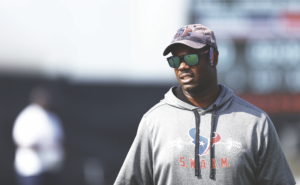
Legendary

Final Four!


